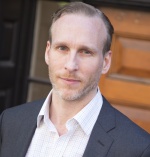Tuesday, June 16, 2015
 by Michael Hamill Remaley, SVP, Public Policy & Communications
by Michael Hamill Remaley, SVP, Public Policy & CommunicationsThis piece was originally published as the feature article for the June 2015 issue of the New York PhilanthroPost Policy Edition.
For many years, nonprofit advocacy organizations like the National Council of Nonprofits and the Institute for Nonprofit Organization Management along with philanthropic infrastructure organizations like National Committee for Responsive Philanthropy and Center for Effective Philanthropy and committed foundation leaders like The Clark Foundation’s Doug Bauer (who co-chairs PNY’s Public Policy Committee) and Paul Brest, formerly of Hewlett Foundation, have steadily sounded the drum beat calling for government and foundations to provide the resources nonprofits really need to do their work effectively. That means, at the very least, dedicating adequate funds in project budgets for overhead and, ideally, moving toward the provision of greater general operating support.
Is it possible, after all these years of advocacy, government and philanthropy are beginning to heed the call?
Perhaps the most substantial development on the overhead issue occurred last December when the federal Office of Management and Budget (OMB) issued its Uniform Guidance on Overhead, which mandated that all contracts with nonprofits using federal funds – including pass-through entities using federal funds such as state and local governments – create contracts with their nonprofit service providers that include at least 10% for overhead. (To learn more about the implications of this for foundations, check out the PNY Issue Guide on this topic.)
It is not at all clear how New York State and City government contracting offices and the individual agencies will respond to this directive. Philanthropy New York is currently in conversation with those offices, as well as our local nonprofit advocacy organizations, to understand how the OMB Guidance is implemented at the State and City levels. Those conversations have been productive, but the reality is that overall State and City budgets are not likely to increase by 10% to provide overhead, so there is a real possibility that funds allocated for program and service delivery may be reduced by 10%. And every City and State agency may decide to set its own policy. It is a complicated situation, nonetheless, the OMB Guidance is already having a hugely positive impact on the direction of the conversation on nonprofit overhead.
Another positive development on overhead occurred last week when the Ford Foundation announced its new funding direction and placed the issue of general operating support squarely in the center of that new strategy. Said Ford Foundation President Darren Walker, “Our aim is to ask not, ‘How do we make this grant successful?’ but rather, ‘How do we help make this organization successful?’ In arriving at this point, I have been inspired by my colleagues in the sector who are already undertaking important work to redress the lack of general-support funding in philanthropy.” He went on to name several key national philanthropic leaders, including Philanthropy New York’s own Chris Stone of Open Society Foundations and Nancy Roob of Edna McConnell Clark Foundation.
These are both great signs that government and philanthropy may be increasingly recognizing the importance of holistic financial support of nonprofit organizations, but it hardly means that either sector is where it needs to be. While New York State and City leaders seem to be responding positively to the OMB Guidance on Overhead, it is not clear how the budget and contracting process will work out in the coming months and years, and there is little evidence that government leaders in other states are even taking the positive steps that are occurring here in New York. Ford Foundation is often a philanthropic leader that others follow, but general operating support is still far from the norm among foundations.
One more positive sign comes from our Regional Association colleagues in California. Northern California Grantmakers, Southern California Grantmakers and San Diego Grantmakers have founded
The Real Cost Project, which aims to increase “real cost funding,” which includes “all of the necessary costs for a nonprofit organization to deliver on mission and to be sustainable over the long term.” The focus is on getting philanthropic organizations to recognize the importance of not just program costs and operating costs, but also planning for reserves and capital costs.
Overhead is definitely having a moment. Philanthropy New York is working to keep this important conversation at the forefront of philanthropic awareness.
